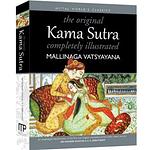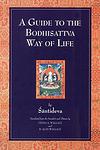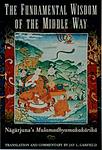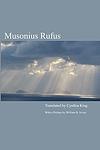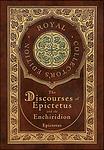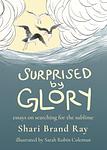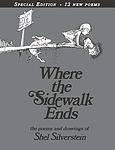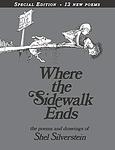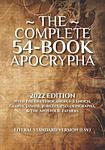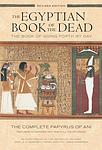The Greatest "Ancient Literature, Nonfiction" Books of All Time
Click to learn how this list is calculated.
This list represents a comprehensive and trusted collection of the greatest books. Developed through a specialized algorithm, it brings together 300 'best of' book lists to form a definitive guide to the world's most acclaimed books. For those interested in how these books are chosen, additional details can be found on the rankings page.
Genres
Ancient Literature refers to the body of written works produced during the earliest periods of human history, typically up until the fall of the Roman Empire in the 5th century AD. This category encompasses a diverse array of texts, including religious scriptures, epic poetry, philosophical treatises, historical accounts, and dramatic plays, originating from various civilizations such as the Sumerians, Egyptians, Greeks, Romans, Chinese, and Indians, among others. Notable works within this genre include the "Epic of Gilgamesh," Homer's "Iliad" and "Odyssey," the plays of Sophocles and Euripides, the philosophical writings of Plato and Aristotle, the "Mahabharata" and "Ramayana" from India, and the foundational texts of Confucianism and Taoism in China. Ancient literature provides invaluable insights into the thoughts, beliefs, and cultural practices of early societies, and continues to influence modern storytelling, philosophy, and ethics.
Countries
Date Range
Reading Statistics
Click the button below to see how many of these books you've read!
Download
If you're interested in downloading this list as a CSV file for use in a spreadsheet application, you can easily do so by clicking the button below. Please note that to ensure a manageable file size and faster download, the CSV will include details for only the first 500 books.
Download-
26. Kama Sutra by Vātsyāyana
This ancient Indian text is a guide to virtuous and gracious living that discusses the nature of love, family life, and other aspects pertaining to pleasure-oriented faculties of human life. It is a comprehensive manual on the art of love and sexual behavior, providing detailed advice on courtship, marriage, and the act of lovemaking. The text, while often associated solely with sexual positions, covers a wide range of topics including the duties and privileges of a wife, advice for courtesans, and methods to attract others.
-
27. Natural History by Pliny (the Elder)
"Natural History" is an extensive work of literature that provides a comprehensive look at the knowledge of the natural world during the Roman era. The book is divided into 37 volumes, each focusing on different aspects such as geography, anthropology, zoology, botany, and mineralogy. The author's curiosity and fascination with the world are evident in his detailed observations and descriptions. The book also includes discussions on art, sculpture, and various other topics, providing a rich and detailed snapshot of the Roman understanding of the world.
-
28. Anabasis by Xenophon
"Anabasis" is a historical narrative detailing the journey of 10,000 Greek mercenaries who are hired by Cyrus the Younger to help him seize the Persian throne from his brother, Artaxerxes II. After Cyrus's death in battle, the Greeks are stranded deep in enemy territory with no supplies or means of escape. The narrative follows their perilous journey home through hostile lands, under the leadership of one of their own, a young soldier who emerges as a capable and inspiring leader.
-
29. The Collected Songs of Cold Mountain by Han Shan
"The Collected Songs of Cold Mountain" is a compilation of poems by a legendary Chinese poet. The book is a collection of over 300 poems filled with wit, wisdom, and spiritual insight. The poet, a recluse who lived in the mountains, expresses his views on life, nature, and the impermanence of human existence through his deeply philosophical and often humorous verses. He is considered a significant figure in Chinese literature and his works have greatly influenced Zen Buddhism.
-
30. Treatises On Friendship And Old Age by Marcus Tullius Cicero
The book comprises two philosophical essays that delve into the nature and significance of friendship and the challenges and wisdom of old age. The first essay explores the meaning of true friendship, its role in society, and its importance as a foundation for moral and happy life, emphasizing mutual respect, virtue, and genuine affection. The second essay addresses the concerns of aging, arguing against the common perceptions of old age as a miserable phase. Instead, it presents old age as a period capable of great mental and intellectual activity and satisfaction, provided one has lived a life based on virtue and fulfillment. Through these essays, the text provides timeless insights into handling some of life's most profound transitions with grace and wisdom.
-
31. Satires by Horace
"Satires" is a collection of poetic essays that delve into the follies and vices of Roman society during the first century BCE. Through a series of witty, critical, and often self-deprecating poems, the author explores themes such as greed, corruption, and social ambition, while advocating for a life of moderation and philosophical contentment. Employing a conversational tone and a keen eye for the absurd, the work satirizes the behaviors of both the elite and the common people, offering a timeless reflection on human nature and the pursuit of happiness.
-
32. Epistles by Horace
"Epistles" is a collection of poetic letters offering insights into the human condition, moral philosophy, and the art of living well. Written in the first century BCE, the work reflects the author's mature thoughts on various subjects, ranging from personal ethics to literary criticism. Through these letters, the poet shares his wisdom with friends and notable contemporaries, employing a conversational tone that blends humor, irony, and sincerity. The epistles serve as a guide to practical wisdom, emphasizing moderation, self-awareness, and the importance of living in harmony with nature and society.
-
33. On The Ends Of Good And Evil by Marcus Tullius Cicero
"On the Ends of Good and Evil" is a philosophical work that explores the ethical theories of Hellenistic schools, including Stoicism, Epicureanism, and the Peripatetic tradition. Through a series of dialogues, the text delves into the nature of happiness and the ultimate end of human action, examining what constitutes the highest good. The author critiques and compares the doctrines of these schools, ultimately defending the Stoic view that virtue is the sole basis of happiness and the ultimate goal in life, while also acknowledging valuable insights from other philosophical traditions.
-
34. A Guide To The Bodhisattva Way Of Life by Santideva
"A Guide to the Bodhisattva Way of Life" is a profound text that explores the path of the bodhisattva, an individual who seeks enlightenment not only for themselves but also for the benefit of all beings. Written in the form of a long poem, the book delves into the practice of developing bodhicitta, the mind of enlightenment, characterized by the desire to liberate all beings from suffering. It offers practical advice on how to cultivate virtues such as patience, diligence, and meditation, emphasizing the importance of compassion and selflessness. The text serves as both a philosophical guide and a practical manual for those aspiring to live a life of deep altruism and spiritual development.
-
35. De Anima by Aristotle
"De Anima" is a foundational philosophical treatise that explores the concept of the soul and its relation to the body. The work delves into the nature of life itself, categorizing different kinds of souls possessed by different kinds of living things, such as plants, animals, and humans. It discusses the faculties of the soul, including the nutritive, perceptive, and intellectual aspects, and investigates their functions and interactions. The treatise also examines issues of perception, cognition, and memory, arguing that the soul is the principle of life and the source of all vital functions, ultimately aiming to define the essence of life and the basis of all living activities.
-
36. The Fundamental Wisdom Of The Middle Way by Nagarjuna, Jay L. Garfield
"The Fundamental Wisdom of the Middle Way" is a philosophical text that explores the Buddhist concept of emptiness and the nature of reality. The work is a verse-by-verse commentary on the challenges and questions pertaining to conventional existence and ultimate truth, aiming to resolve the dichotomies and contradictions inherent in ordinary experience. Through rigorous argumentation and logical analysis, the text deconstructs the assumptions of inherent existence in phenomena, proposing instead that all things exist interdependently. This exposition not only deepens the understanding of Buddhist philosophy but also offers insights into the nature of suffering and liberation.
-
37. Musonius Rufus by Musonius Rufus, Cynthia King
This book presents the teachings of Musonius Rufus, a prominent Stoic philosopher of the 1st century AD, whose ideas focus on the practical applications of Stoicism in daily life. Through a series of lectures and dialogues, Rufus emphasizes the importance of virtue as the sole path to happiness, advocating for simplicity in living, self-discipline, and equality between men and women in education and marriage. His accessible philosophy addresses how to live a good and moral life, covering topics from diet and exercise to the handling of emotions and the importance of philosophical study.
-
38. The Book Of The Courtier by Baldassare Castiglione
This Renaissance classic is a seminal work on etiquette and courtly manners, presenting an idealized vision of the perfect gentleman and lady at the courts of Italy. Through a series of dialogues set over four evenings, the book explores the attributes of a well-rounded courtier, emphasizing skills such as martial arts, physical grace, and intellectual pursuits, alongside the importance of moral virtue and the art of conversation. The text also delves into the complex interplay of love, the role of women in court, and the philosophical underpinnings of what it means to live a noble life, ultimately providing a guide to the refined behavior expected in aristocratic circles of the time.
-
39. Selected Speeches by Demosthenes, Robin Waterfield
"Selected Speeches" is a compilation of orations by one of ancient Greece's most renowned orators, Demosthenes. The collection, translated and edited by Robin Waterfield, showcases Demosthenes' eloquence and his passionate involvement in the political life of Athens. Through these speeches, readers gain insight into the complex social and political issues of the time, including the struggle against Macedonian influence under Philip II. The speeches not only highlight Demosthenes' rhetorical prowess but also reflect the dynamics of power and resistance in classical Athens, offering a window into the art of persuasion and the civic identity of the Athenians.
-
40. Enchiridion Of Epictetus by Epictetus
The book is a concise manual of ethical advice compiled by Arrian, a student of the Stoic philosopher Epictetus. This practical guide provides philosophical teachings on how to live a virtuous life, emphasizing the importance of personal freedom and the control of one's emotions. It advocates for focusing on what is within one's power—distinguishing between what one can change and what one cannot—and stresses the significance of developing resilience to external circumstances. The text is foundational in the discipline of Stoicism, offering insights into achieving peace of mind and living in harmony with the natural world.
-
41. Moralia by Plutarch
"Moralia" is a collection of essays and dialogues that delve into various ethical, religious, physical, political, and literary topics, reflecting the author's profound interest in the moral issues of his time. The work is not a single coherent piece but rather an eclectic compilation of thoughts and inquiries, ranging from the proper behavior at a banquet to discussions on the nature of virtue and the influence of superstition. Through these texts, the author explores the conduct of daily life and the philosophical underpinnings of human actions, often drawing on historical examples and the wisdom of Greek and Roman thinkers to illustrate his points. The collection serves as a rich source of insight into the intellectual climate of the early Imperial period and the enduring questions of human morality.
-
42. On The Sublime by Longinus
The treatise in question is a seminal work of literary criticism from antiquity that explores the concept of the sublime, a quality of greatness or grandeur that can elevate written works to the highest levels of distinction. The author examines the sources of sublimity, attributing it to a combination of the natural abilities of the writer and their emotional investment, while also considering the effects of rhetorical devices, figures of speech, and noble diction. The work further discusses the importance of avoiding pitfalls that can detract from the sublime and includes analysis of various texts to illustrate its points. The author's insights aim to guide writers and critics in creating and recognizing profound and moving literature that can stand the test of time.
-
43. Works by Empedocles
The book in question is a compilation of philosophical and poetic writings attributed to an ancient pre-Socratic philosopher. It delves into the author's theories on the nature of the universe, which are centered around four eternal elements—earth, air, fire, and water—and two opposing forces, Love and Strife, which are responsible for the combination and separation of these elements. The work also touches upon themes such as the transmigration of souls, the unity of being, and the importance of striving for harmony with the cosmos. Through a blend of poetic allegory and speculative thought, the text seeks to explain the complexity of the world and the principles governing its changes and transformations.
-
44. Satires by Persius
The book is a collection of six satirical poems written in Latin, which delve into the moral and philosophical concerns of the author's time. Through sharp wit and a penetrating critique of contemporary Roman society, the author exposes the vices and follies of his peers, particularly targeting the corruption, greed, and hypocrisy that he perceives. The work reflects Stoic philosophical ideals and emphasizes the importance of virtue, self-awareness, and the pursuit of wisdom over material wealth and superficial success. Despite its serious themes, the book is known for its poetic artistry and the clever use of language to convey its biting commentary on the moral decay of society.
-
45. Satires by Juvenal
"Satires" is a collection of poetic essays from ancient Rome that offer a scathing critique of the social and political landscape of the time. The work delves into the corruption, decadence, and moral decay of Roman society, using biting wit and a satirical tone to expose the vices and follies of its citizens and leaders. The author employs a range of literary devices, from irony to hyperbole, to lambast the greed, hypocrisy, and depravity he perceives, while also reflecting on human nature and the challenges of living a virtuous life amidst widespread societal failings. The text is not only a commentary on the specific historical context but has also been interpreted as a timeless exploration of the human condition.
-
46. Poems by Alkman
The book is a collection of ancient Greek lyric poetry attributed to a celebrated poet of the Archaic period. It encompasses a range of choral compositions that were originally intended for musical accompaniment, reflecting the cultural and social milieu of Sparta during the 7th century BCE. The verses are characterized by their vivid imagery, rhythmic innovation, and the use of a local dialect, which together convey themes of nature, mythology, and everyday life. Although only fragments of the original works survive, they offer a glimpse into the ceremonial performances and the poetic artistry of the time, showcasing the poet's skill in blending personal expression with communal celebration.
-
47. Poems by Archilochos
The book is a collection of lyrical poetry from an ancient Greek poet renowned for his versatile and innovative use of poetic meters. The poems reflect the poet's personal experiences, emotions, and observations, often with a sharp wit and a frank, sometimes acerbic, tone. His work covers a range of themes, from war and politics to love and loss, offering a glimpse into the life and times of the early Greek lyrical tradition. The poet's influence is notable for his pioneering role in the development of the personal voice in poetry, breaking away from the Homeric tradition of epic storytelling to explore individual human experiences.
-
48. Sayings Of The Fathers by Unknown
"Sayings of the Fathers" is a compilation of ethical teachings and maxims from Jewish sages. This text, part of the Mishnaic tractate of Pirkei Avot, serves as a guide to personal development and spiritual growth. It emphasizes the importance of character, humility, learning, and the pursuit of justice, offering wisdom that has been influential in Jewish thought and beyond. The sayings encapsulate the essence of moral conduct and provide insights into leading a life that balances worldly concerns with spiritual aspirations.
-
49. The Apocrypha by Unknown
"The Apocrypha" refers to a collection of ancient Jewish writings that are included in some versions of the Bible, particularly in the Septuagint and the Latin Vulgate, but are not considered canonical by all Jewish and Christian traditions. These texts include a variety of genres such as historical narratives, wisdom literature, additions to canonical books, and apocalyptic visions. They provide valuable insights into Jewish thought and practice during the Second Temple period and are revered in some Christian denominations for their historical and spiritual significance, despite their varying levels of acceptance across different religious communities.
-
50. Egyptian Book Of The Dead by Unknown
The text in question is an ancient Egyptian funerary text consisting of spells, prayers, and incantations intended to guide the deceased through the afterlife. It contains detailed instructions for the soul's journey past various obstacles, with the ultimate goal of reaching the afterlife and achieving eternal life. The spells are designed to protect the soul from evil forces, ensure the continuation of life after death, and maintain harmony with the gods. This collection of texts highlights the Egyptians' beliefs about the importance of the afterlife and the complex rituals associated with death and burial practices.
Reading Statistics
Click the button below to see how many of these books you've read!
Download
If you're interested in downloading this list as a CSV file for use in a spreadsheet application, you can easily do so by clicking the button below. Please note that to ensure a manageable file size and faster download, the CSV will include details for only the first 500 books.
Download